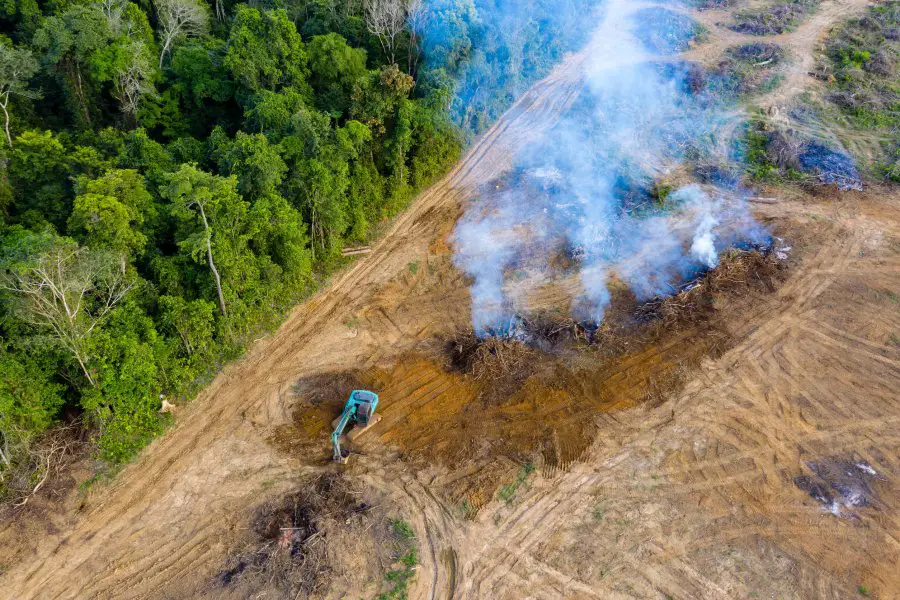Biodiversity Experts Issue Chilling Caution: Destruction Of Nature Will Lead To More Pandemics
Tags: News

Experts say that there is only a small window of opportunity for humans to change their destructive ways towards nature in order to avoid deadly new pandemics like the coronavirus from breaking out.
This was the finding of a group of biodiversity professors whose article was published this week by the Intergovernmental Platform on Biodiversity and Ecosystem Services (IPBES).
It’s widely believed that the coronavirus started through the transmission of the virus from an animal, probably a bat, to a person at a wet-market in Wuhan, China.
This has raised questions about the way we are treating our planet. About how the destruction of the natural world has brought wild animals and humans into closer contact. As to why there are such desperate levels of poverty and inequality which cause people to trade in animals in the first place.
The authors feel strongly that the coronavirus is a direct result of the exploitative and greedy nature of humans.
“Rampant deforestation, uncontrolled expansion of agriculture, intensive farming, mining and infrastructure development, as well as the exploitation of wild species have created a ‘perfect storm’ for the spillover of diseases from wildlife to people,” read part of their statement.
“There is a single species that is responsible for the COVID-19 pandemic – us. As with the climate and biodiversity crises, recent pandemics are a direct consequence of human activity – particularly our global financial and economic systems, based on a limited paradigm that prizes economic growth at any cost.
“We have a small window of opportunity, in overcoming the challenges of the current crisis. To avoid sowing the seeds of future ones.”
Things will get worse if we continue to mess with nature
The effect of the coronavirus and the subsequent lockdowns has changed our world dramatically. As heavy industries have shut down and road and air transport has nearly come to a standstill, the environment has benefited.
Optimists are hoping that the coronavirus could bring about a ‘reset’ to the ways of the world. But there will also be governments and corporations looking to make up for lost revenues by pushing even harder than before.
This could be catastrophic, as the authors point out:
“It may be politically expedient at this time to relax environmental standards and to prop up industries such as intensive agriculture, long-distance transportation such as the airlines, and fossil-fuel-dependent energy sectors. But doing so without requiring urgent and fundamental change, essentially subsidizes the emergence of future pandemics,” they warned.
According to the report, 700 000 people die each year from animal-to-human diseases. And there are an estimated 1.7 million unidentified viruses in animals which could infect people. Some of which could be even more devastating than the coronavirus.
Is there a way to reverse the cycle?
With population growth, exploitation, and inequality rife, it will be a massive challenge to bring about positive change.
The authors highlighted three areas that need to be addressed urgently for this to happen.
Firstly, the strengthening of environmental regulations. Second is the implementation of a “One Health approach at all levels of decision-making. From the global to the most local. Recognizing the complex interconnections among the health of people, animals, plants, and our shared environment.”
The third aspect is to improve healthcare systems, to mobilize global finance for this. And to provide “sustainable alternatives to high-risk economic activities and protecting the health of the most vulnerable.”
This will all take significant investment. But it will pay off in the long term, they believe.
“The programs we’re talking about will cost tens of billions of dollars a year,” one of the authors, Peter Daszak told The Guardian. “But if you get one pandemic, even just one a century, that costs trillions. So you still come out with an incredibly good return on investment.
“Business as usual will not work. Business as usual right now for pandemics is waiting for them to emerge and hoping for a vaccine. That’s not a good strategy. We need to deal with the underlying drivers.”
Read more: Sweden And Austria Go Coal-Free After Shutting Down Their Last Coal Power Plants
Image Credit: Richard Whitcombe

Leave Comment: